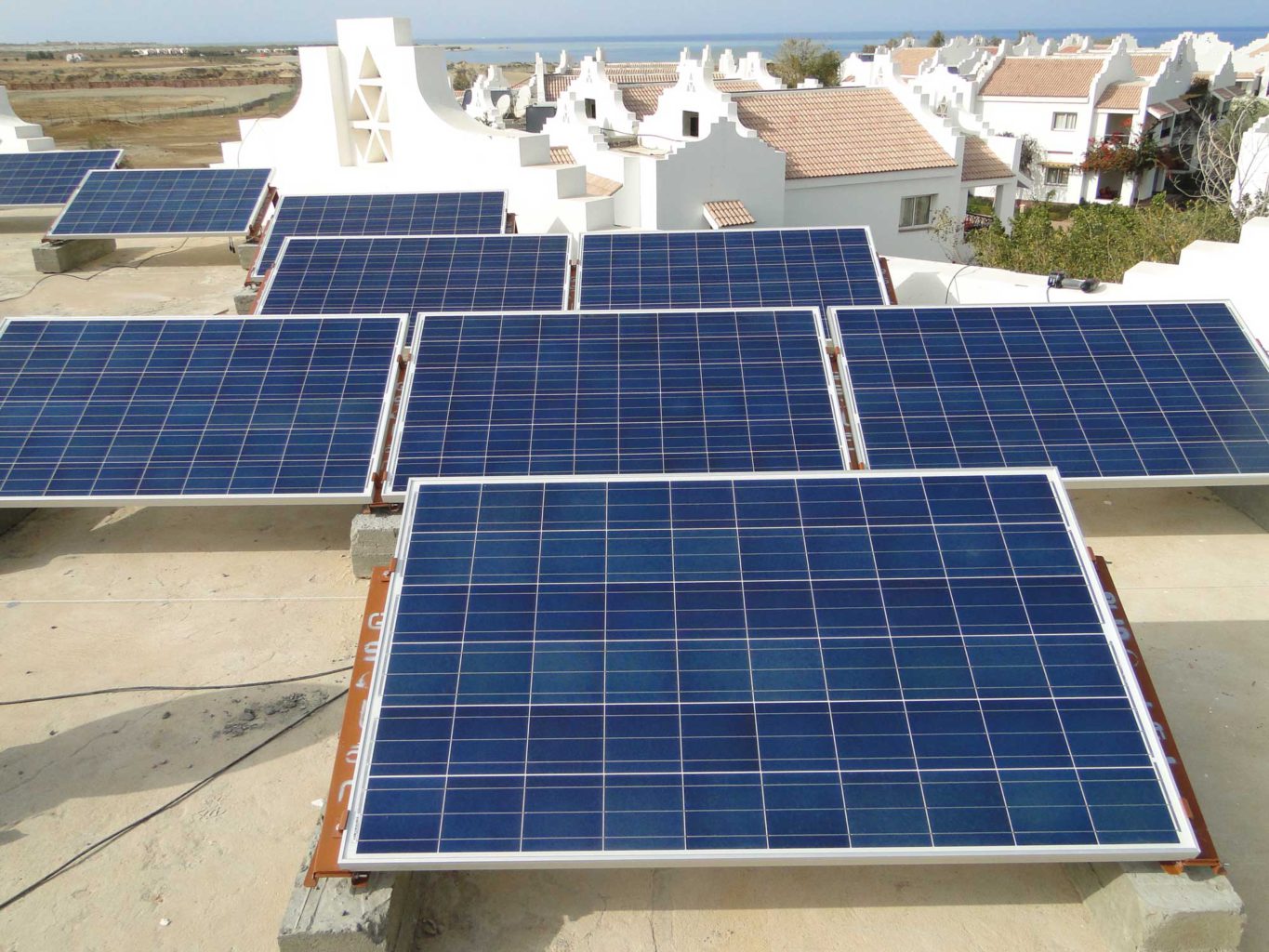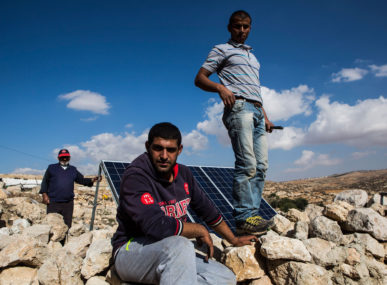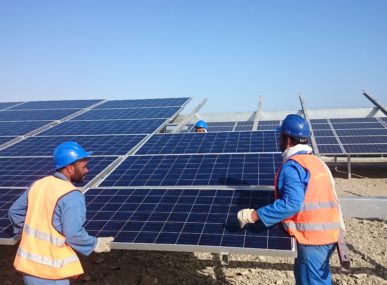In 2011, Ibrahim Elfeky and Mohamed Galal started following Egypt’s renewable energy market closely. A few years later in 2014, they knew the timing was perfect to launch esolar, their new business venture.
Ibrahim and Mohamed began tapping into their professional networks to identify potential solar projects and grow their business. They met with community members in new neighborhoods and compounds to raise awareness about the benefits of solar energy. They reached out to large industries and small-to-medium businesses to see if solar energy could help them reduce their energy costs. But these projects stalled due to lack of financial incentives and access to funding.
For one of their first successful projects, esolar worked with Lahmy Bay eco-resort, located on the Red Sea coast, to build a small solar system producing electricity alongside its diesel generators. Many resorts and hotels in along the Red Sea coast are not connected to the national electricity grid and rely solely on diesel fuel to generate electricity. With prices of diesel fuel more than doubling in recent years, the case for switching to solar energy has become stronger and stronger.






